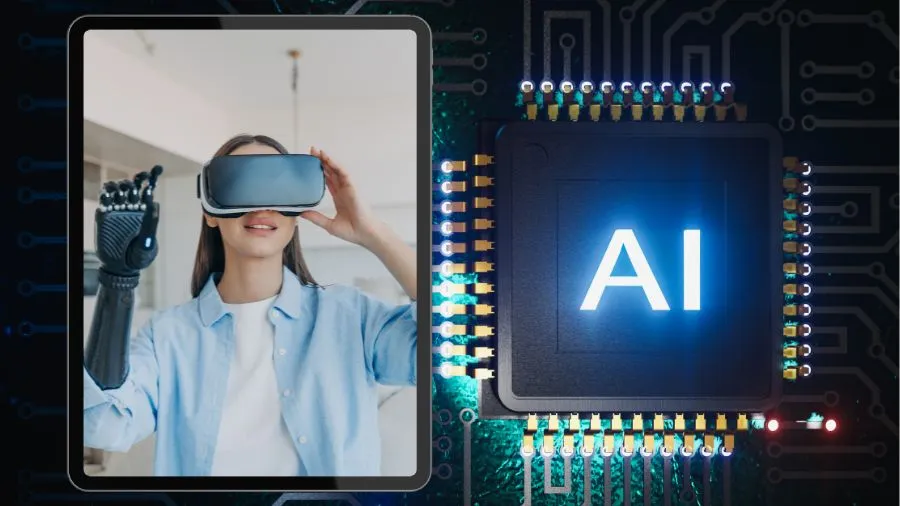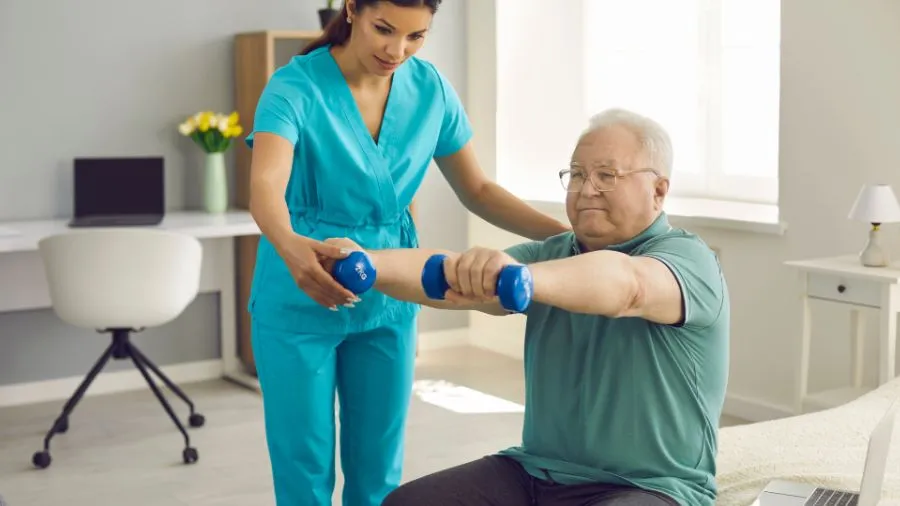The field of rehabilitation is undergoing a revolution driven by Artificial Intelligence (AI). AI-powered applications are transforming the way we deliver therapy, assess progress, and motivate patients on their road to recovery. This article explores the exciting possibilities of AI in rehabilitation, particularly its impact on neurologic rehabilitation.
AI in Neurologic Rehabilitation
Neurologic rehabilitation focuses on helping patients regain function and improve their quality of life after a neurological event like a stroke, spinal cord injury, or brain tumor. AI has the potential to significantly enhance neurologic rehabilitation in several ways:
- Personalized Treatment Plans: AI algorithms can analyze vast amounts of patient data, including medical history, movement patterns, and treatment responses. This allows therapists to create personalized treatment plans tailored to each patient’s unique needs and goals.
- Improved Assessment Techniques: AI-powered applications can analyze movement patterns through wearable sensors or video recordings. This data can be used to identify subtle deficits and track progress over time, leading to more objective and accurate assessments.
- Virtual Reality (VR) Therapy: VR combined with AI creates immersive environments that can enhance patient engagement and motivation. AI can personalize VR experiences based on patient progress and adjust difficulty levels to optimize therapeutic benefit.
- Robot-Assisted Therapy: AI-powered robots can provide patients with safe and consistent assistance during rehabilitation exercises. They can adapt to a patient’s strength and range of motion, offering personalized support and feedback.
- Remote Monitoring and Support: AI-powered applications can facilitate remote monitoring of patients between therapy sessions. This allows therapists to track progress, identify potential issues early on, and provide ongoing support and guidance.
These are just a few examples of how Artificial Intelligence is transforming neurologic rehabilitation. As AI technology continues to evolve, we can expect even more innovative applications that will further improve patient outcomes.
Benefits of AI-Powered Rehabilitation
The integration of AI into rehabilitation programs offers a multitude of benefits for both patients and therapists:
- Improved Patient Outcomes: Personalized treatment plans, enhanced assessment techniques, and increased patient engagement can all lead to faster and more effective rehabilitation.
- Increased Accessibility: AI-powered applications can help bridge the gap in access to qualified therapists, particularly in remote areas. Tele-rehabilitation using AI can provide patients with care and support even if they cannot attend in-person therapy sessions.
- Reduced Healthcare Costs: By optimizing treatment plans and improving patient outcomes, AI has the potential to reduce overall healthcare costs associated with rehabilitation.
- Therapist Efficiency: AI can automate administrative tasks and provide real-time data analysis, freeing up therapists’ time to focus on patient care and interaction.
Challenges and Considerations
While AI holds immense promise for the future of rehabilitation, there are also challenges that need to be addressed:
- Data Privacy and Security: Protecting patient data is paramount. Robust security measures must be in place to ensure the privacy and confidentiality of sensitive information collected by AI applications.
- Integration with Existing Workflows: Integrating AI seamlessly into existing rehabilitation practices requires careful planning and training for therapists to adapt to new technologies.
- Cost and Accessibility: The cost of developing and implementing AI-powered technologies can be a barrier for some healthcare facilities. Ensuring equitable access to these technologies is important.
- Over-reliance on AI: Artificial Intelligence should be seen as a tool to augment, not replace, the expertise of therapists. Human judgment, empathy, and the therapeutic relationship remain crucial for successful rehabilitation.
Conclusion
Artificial Intelligence is revolutionizing the field of rehabilitation, with particularly promising applications in neurologic rehabilitation. AI-powered tools can personalize treatment plans, improve assessment techniques, and enhance patient engagement, ultimately leading to better patient outcomes. As we move forward, it is important to address the challenges of data privacy, integration, and cost to ensure equitable access to these transformative technologies.
Sources:
This article is based on information from several sources published within the last decade, including:
-
- Impact of AI-Powered Solutions in Rehabilitation Process: https://www.ncbi.nlm.nih.gov/pmc/articles/PMC10944308/ (2019)
- The Future of Physical Therapy: How AI is Transforming Rehabilitation and Injury Prevention: https://news.northeastern.edu/2024/04/22/ai-physical-therapy/ (2023)
- Artificial Intelligence (AI) In Health Care and Rehabilitation: [invalid URL removed] (2023)




